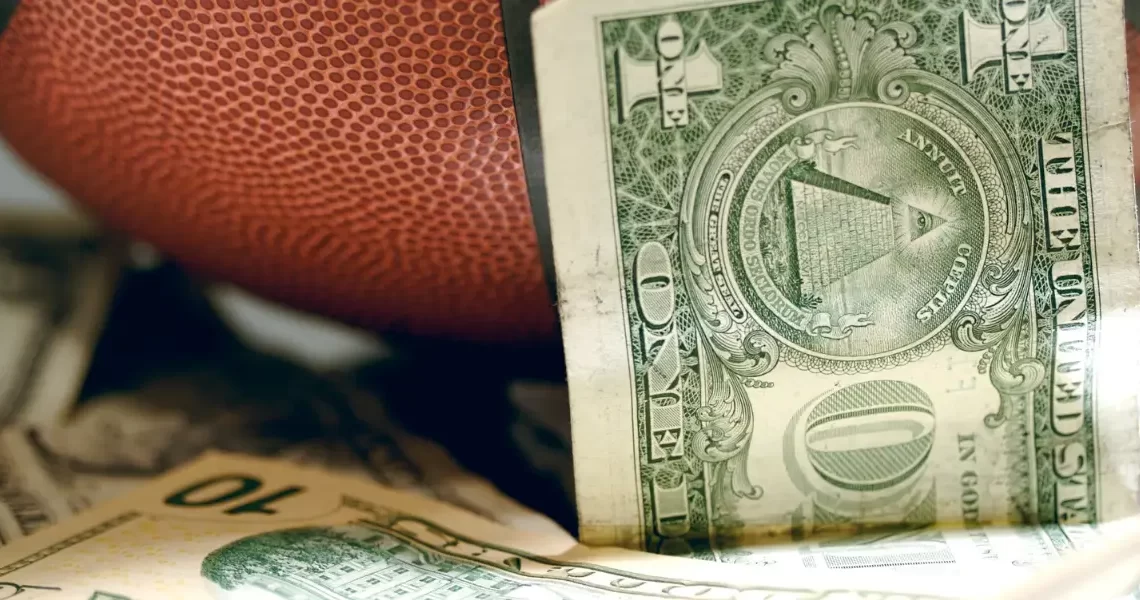
Anatomy of a Betting Scandal – Lessons From the Past
June 28, 2023Kate Whitehouse is a tough prosecutor inspired by real-life cases of point shaving and illegal gambling operations.
Lead1, an association of college athletic directors, recently hosted a webinar that asked four betting experts for their assessment of the likelihood of an NCAA sports betting scandal occurring at some point in time. All agreed it would happen eventually.
Legalization
Ten years ago, sports leagues fought New Jersey tooth-and-nail in an unsuccessful effort to prevent legal gambling. Since then, however, they’ve entered partnerships with gambling companies and plastered their ballparks with sports betting advertising; odds even make regular appearances during game broadcasts! Betting odds bring in additional tax revenue while providing casinos and horse tracks with additional auxiliary revenue streams. All this bodes well for sports leagues while providing extra tax revenue streams and supplementary revenues streams for casinos and horse tracks alike.
Kate Woodcroft can use the show’s finale to redeem herself after failing to secure justice for Olivia Lytton following James Whitehouse’s rape, although this won’t change British politics or expose corruption at its highest levels – Sophie tells her of evidence against both Whitehouse and Southern in Sophie’s letter that could bring both down.
Recent months have seen several states passing or proposing laws to combat misleading sports betting advertising and promotion. Ohio’s casino control commission recently levied fines of $800,000.00 against DraftKings and Penn Entertainment for running television advertisements that misrepresented Ohio’s betting age limit. Some states are also considering legislation which would limit cartoon characters, professional athletes or celebrities appearing in ads related to sports betting.
Regulation
Betting scandals don’t have to be seen as bad things; however, they have the power to jeopardize college sports’ integrity. From Salvatore Solazzo at City College of New York in 1951 and Tulane University gambling scandal of 1985 through Ed Martin at University of Michigan 1996 and their respective federal reactions and rule changes by NCAA, each incident had far-reaching ramifications on college athletics and its integrity.
States with legalized gambling are taking steps to tighten oversight, including measures to prevent underage betting and crack down on bettors themselves through legislation in Ohio, West Virginia and Massachusetts that allows state officials to bar gamblers who threaten or harass athletes over losing bets.
Multiple states are taking steps to prevent betting companies from entering into contracts with colleges that compensate them in exchange for helping promote sports betting platforms. Massachusetts introduced such legislation earlier this month, while Maryland and Connecticut may follow suit shortly.
Lead1 Association, an athletic director group, asked its panel in a recent podcast: What’s the probability that there will be a major betting scandal in college sports within three years? All four panelists agreed it was likely; bettors need something new to bet on once the NCAA men’s tournament ends and NBA and NHL postseasons begin in April.
Taxes
Gambling brings taxes of its own: sportsbooks collect taxes from gamblers who pay state and local taxes while casino operators must also pay state and federal taxes. These revenues, along with taxes levied by local governments, go towards supporting public services like schools and hospitals as well as tourism revenues generated in states that allow sports betting. Nonetheless, critics of sports betting contend it’s unfair that taxpayers subsidize this new industry.
College baseball scandals tend to get more press when they involve coaches; however, this was no surprise to those in the gambling industry. Betting on smaller sports like softball and baseball has increased significantly since legal sports betting became widespread; NCAA short schedules make this growth possible and make this sport especially susceptible to betting scandals.
Anatomy of a Scandal may not appeal to everyone, but its creators should be applauded for taking on such an inherently sensitive subject matter. From Kate Woodcroft’s tedious bow-tie clerk and Joshua McQuire’s The Thick of It spin doctor cast-off spin doctor from Joshua McQuire’s series The Thick of It cast-off, this show does not shy away from exploring some of our culture’s darker corners.
Enforcement
Enforcement of gambling laws is a complex issue. Most Americans see nothing wrong with gambling, making it hard for them to comprehend why government agencies would try and stop them from participating. Unfortunately, most prosecutors and police officers lack sufficient resources to effectively enforce such laws.
Betting scandals involving major events like March Madness or College Football Playoff often garner widespread media coverage, yet smaller sports can also be vulnerable. A large bet placed on a low-profile game could raise suspicion at its sportsbook level and prompt an investigation by U.S. Integrity or another monitoring service resulting in sanctions such as suspensions or fines against violators – a necessary part of law enforcement as without this process most would break gambling laws unchecked.






